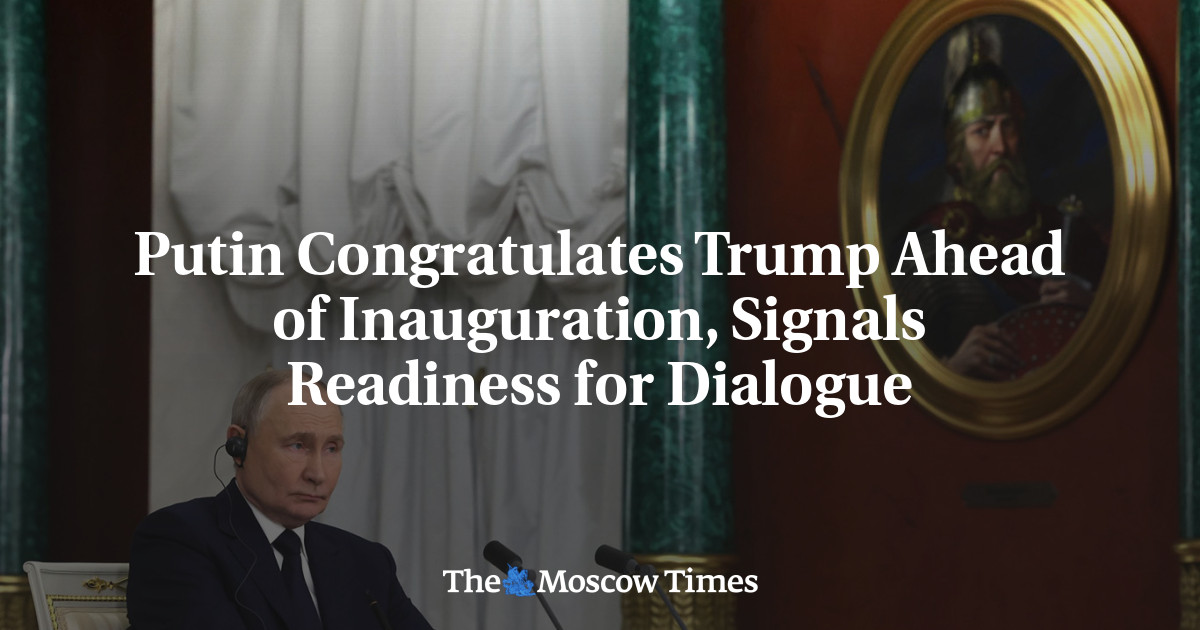By Leonardo Blair, Senior Reporter Saturday, January 25, 2025

NEW YORK — On a flight to the city one Sunday, Molly Matthews watched the regularly scheduled worship service at her home church in Washington state from her phone. She needed to be at a business conference downtown the next day and thanks to her church’s livestream broadcast, she was able to stay connected with her congregation on her way out of town.
Matthews is the CEO of Pushpay, a leading payments and engagement solutions provider for the faith-based and nonprofit sectors. She and her staff are part of a growing niche of businesses helping churches leverage big data and new technology to evolve into more sophisticated and multifaceted operations that better connect with the people they're trying to reach.
In today’s overcrowded market of distractions competing for people’s attention, data has become a necessary tool for many churches, says Matthews. And though the organization is agnostic, there is a shared belief at Pushpay that “there's a church out there for everybody.”

Get Our Latest News for FREE
Subscribe to get daily/weekly email with the top stories (plus special offers!) from The Christian Post. Be the first to know.
“The reality is, there are [churches] having to compete for attention,” Matthews told The Christian Post in an interview over coffee in Midtown, Manhattan, on a frigid Monday morning.
Using her own life as an example of the typical distracted churchgoer, the married mother of two highlighted how churches informed by data can better serve their congregants and the wider communities in which they exist.
“My family's super busy. My husband and I both have full-time jobs. Our girls are 16 and 13. They're all over the map, doing stuff. We're distracted. Full stop. I wish we weren't,” said Matthews whose next stop would be a business conference downtown later that morning. “We think that data component of understanding [is helpful].”
Instead of seeing church as a static space people are expected to visit on Sundays, Matthews and her team are helping churches transcend their physical walls to expand their communities in a way that’s more responsive to modern life.
“[Data allows you to see] what are the rhythms and [what does it] look like for our family. When are we consuming content? It's not just Sunday. My church would know if I'm traveling, they produce a live stream, so I'm watching the livestream, or they publish it as a stored piece of content on Tuesday morning, so I listen to that on my drive to work or somewhere else if we weren't home on Sunday,” Matthews said. “So just really wrapping the whole ecosystem around a person, versus feeling like a person has to go participate with them, just on Sunday morning.”
Innovative growth
Though a recent Gallup poll, shows a consistent decline in church attendance which is now at an all-time low, Matthews says many of the churches that have used the services of Pushpay to reach people have been experiencing growth.
“When I look at all of the data that's showing, essentially the decline of participation in churches, in the U.S., … in a lot of the churches we work with, we're seeing the opposite,” Matthews said. “We're seeing participation increase. We're seeing them launching campuses. We're seeing them think about a different way to do ministry.”
Driven by data services provided by Pushpay, one client based in Cincinnati, Ohio, was able to create a church service that specifically catered to healthcare workers.
“We have a church in Cincinnati which is very innovative, and they noticed they have a lot of healthcare workers living in one community. The only time that they could gather as a group is Sunday night at 8 p.m.,” Matthews said.
The Pushpay CEO noted that while many families would balk at attending a church service scheduled for 8 p.m. on a Sunday night, among the healthcare workers, the idea was a boon.
“They [the church] started a service just tailored toward healthcare workers at 8 o'clock. And there's hundreds of people attending right next to a hospital. I think they're using data to understand, where can they live out their vision? Where can they be most impactful?” Matthews explained.
Since Pushpay was launched in 2011, Matthews says she has seen an increased demand for the company’s services from churches tired of shooting in the dark and it is “super exciting.”
Emerging trends
Among the church-specific trends Pushpay has seen in their analysis of data is how people select a congregation to visit when they move to a new neighborhood. On average, says Matthews, their data shows people research eight churches before choosing one.
“People do not go to websites any longer saying this is going to tell me everything I need to know about a church,” explained Matthews.
“If I want to go and attend, what we see is, on average, somebody will watch content and look at … their social media or their website or some other kind of digital window into the church and will watch a clip of their teaching for eight different churches before they step foot into one.”
The data also shows significant consumption of content released by American churches globally reflecting a wider and more diverse market.
And churches that invest in data services that highlight these insights use them to shape how they engage with the people who step through their doors responsively.
“That experience [of those churches] has been tailored right down to the T, where the coffee's at, who's greeting you, how the parking is, where you're seated, a first time guest experience,” the Pushpay CEO explained. “It's not to be showy at all. They want people to feel welcome the moment they get on their campus.”
Pushpay’s findings follow a similar report in 2021, in which Gloo, a small company which brands itself as a personal growth platform, disclosed that more than 30,000 churches had signed up for their services to sure up falling attendance.
In How the digital revolution is disrupting the Church and forcing it out of buildings, CP also previously highlighted how digital technologies have been forcing churches away from a one size fits all church model. In A small town pastor’s push to bring people back to church through the metaverse in the wake of the COVID-19 pandemic, CP also showed how Cornerstone Church of Yuba City in California built a church community in the metaverse then brought that community together at their building.
Addressing loneliness
Matthews believes, data-driven churches are now more capable of helping to address some pressing social and public health issues like the epidemic of loneliness U.S. Surgeon General Dr. Vivek Murthy warned about in an 82-page advisory in 2023 called Our Epidemic of Loneliness and Isolation.
Loneliness as defined by the surgeon general’s advisory, refers to “a subjective distressing experience that results from perceived isolation or inadequate meaningful connections, where inadequate refers to the discrepancy or unmet need between an individual’s preferred and actual experience.”
About one-in-two adults in America reported experiencing loneliness data shows.
“Loneliness is far more than just a bad feeling,” wrote Murthy in letter included in the advisory.
“It harms both individual and societal health. It is associated with a greater risk of cardiovascular disease, dementia, stroke, depression, anxiety, and premature death. The mortality impact of being socially disconnected is similar to that caused by smoking up to 15 cigarettes a day, and even greater than that associated with obesity and physical inactivity,” he said.
“And the harmful consequences of a society that lacks social connection can be felt in our schools, workplaces, and civic organizations, where performance, productivity, and engagement are diminished.”
Researchers calculated that loneliness and isolation cost employers an estimated $154 billion annually from stress-related absenteeism. Some $6.7 billion in excess Medicare spending annually was also attributed to social isolation among older adults. Murthy recently addressed the issue in an interview with media mogul Oprah Winfrey.
Using big data, churches, can target people at risk of loneliness and help those who respond to their outreach find meaningful community Matthews said.
“The antidote to loneliness is belonging. And so really, how do we help those who maybe are in the church or are not in the church who are identifying in that season of their life or in that moment,” she noted. “You can't be lonely if you belong.”
Concerns
When asked if churches using big data to target people for ministry comes with risks including privacy concerns and the potential for vulnerable people to be manipulated by for example prosperity preachers, Matthews noted that everything comes with risk.
She pointed out that commercial businesses currently use similar technology to identify potential consumers. Social media platforms also collect significant amounts of data on users to feed them content. It is a logical step for churches to do the same, she said, if it makes their work in ministry more efficient.
“Why could somebody who is feeling a need to belong, who's feeling deeply lonely, why could they not turn that beacon on, and have church members, people see that and connect with them?” Matthews asked. “Why are we okay with an Uber driver picking us up but not okay with somebody reaching out to us from a known entity, like a church?”
Pointing to the way popular streaming service Netflix uses sophisticated algorithms to suggest content to users and tailors the experience of the user through a variety of data points, Matthews argued that the benefits of the data driven church should trump concerns in light of the current conditions.
“This should be the beauty and the benefit of technology and information. We should be able to know more about people in order to tailor content to them. You don't log into Netflix, and [say], ‘that's weird. I feel like my privacy has been violated,’” she said.
“Why do we feel so violently opposed to that when we talk about faith? Why would we be so offended that somebody would surface content to us that might be tailored to where I'm at in my life,” she explained.
Despite her position though, Matthews says she understands the concerns in a church context and noted that companies like Pushpay operate with the same level of security and compliance used by commercial banks in handling data.
Some pastors Matthews said have approached the use of data to reach potential members with privacy concerns in mind too.
“They don't want to overstep or feel like they're invading your privacy. They want you to choose to step in and … we just, monitor that middle ground,” the Pushpay CEO said.
“How can we get somebody enough content that they might be interested in, where they might click, read and dig in and be like, man, I am lonely,” she said.
“I never really thought about a small group. I never really thought about maybe it's a cooking class with a neighbor. I never really thought about a play date for my kiddo,” she said. “Why would they not view that as a beautiful thing?”
Contact: leonardo.blair@christianpost.com Follow Leonardo Blair on Twitter: @leoblair Follow Leonardo Blair on Facebook: LeoBlairChristianPost









